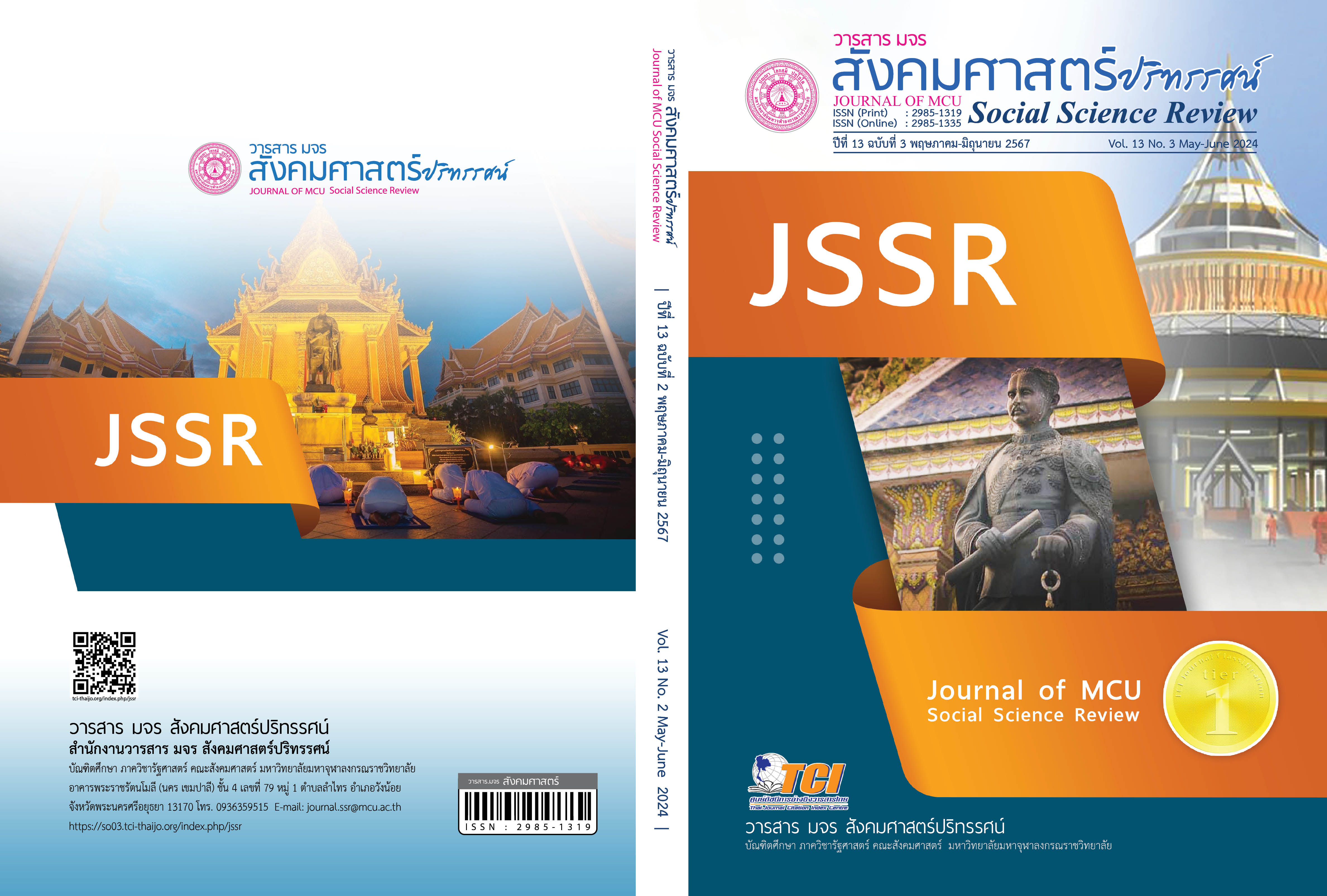ผลการจัดการเรียนรู้โดยใช้ปัญหาเป็นฐาน เรื่อง ระบบนิเวศและความหลากหลาย ทางชีวภาพ ที่มีต่อผลสัมฤทธิ์ทางการเรียน และความสามารถในการแก้ปัญหาทางวิทยาศาสตร์ของนักเรียนชั้นมัธยมศึกษาปีที่ 3 โรงเรียนตากพิทยาคม จังหวัดตาก
คำสำคัญ:
การจัดการเรียนรู้โดยใช้ปัญหาเป็นฐาน, ผลสัมฤทธิ์ทางการเรียน, ความสามารถในการแก้ปัญหาทางวิทยาศาสตร์บทคัดย่อ
บทความวิจัยนี้มีวัตถุประสงค์ 1. เปรียบเทียบผลสัมฤทธิ์ทางการเรียนของนักเรียนชั้นมัธยมศึกษาปีที่ 3 ที่เรียนด้วยการจัดการเรียนรู้โดยใช้ปัญหาเป็นฐาน กับนักเรียนที่เรียนด้วยการจัดการเรียนรู้แบบปกติ 2. เปรียบเทียบความสามารถในการแก้ปัญหาทางวิทยาศาสตร์ของนักเรียนชั้นมัธยมศึกษาปีที่ 3 ที่เรียนด้วยการจัดการเรียนรู้โดยใช้ปัญหาเป็นฐานกับนักเรียนที่เรียนด้วยการจัดการเรียนรู้แบบปกติ 3. เปรียบเทียบความสามารถในการแก้ปัญหาทางวิทยาศาสตร์ของนักเรียนที่เรียนด้วยการจัดการเรียนรู้โดยใช้ปัญหาเป็นฐานระหว่างก่อนเรียนและหลังเรียน กลุ่มตัวอย่าง ได้แก่ นักเรียนชั้นมัธยมศึกษาปีที่ 3 ทั้งหมด 126 คน จำนวน 2 ห้องเรียน โดยการสุ่มแบบกลุ่ม เครื่องมือที่ใช้ในการวิจัย ได้แก่ แผนการจัดการเรียนรู้โดยใช้ปัญหาเป็นฐาน แบบทดสอบวัดผลสัมฤทธิ์ แบบวัดความสามารถในการแก้ปัญหาทางวิทยาศาสตร์ สถิติที่ใช้ในการวิเคราะห์ข้อมูล ได้แก่ ค่าเฉลี่ย ส่วนเบี่ยงเบนมาตรฐาน และทดสอบค่าที
ผลการวิจัยพบว่า 1. ผลสัมฤทธิ์ทางการเรียนหลังเรียนของนักเรียนที่ได้รับการจัดการเรียนรู้โดยใช้ปัญหาเป็นฐานสูงกว่านักเรียนที่ได้รับการจัดการเรียนรู้แบบปกติ 2. ความสามารถในการแก้ปัญหาทางวิทยาศาสตร์ของนักเรียนที่ได้รับการจัดการเรียนรู้โดยใช้ปัญหาเป็นฐานสูงกว่านักเรียนที่ได้รับการจัดการเรียนรู้แบบปกติ 3. ความสามารถในการแก้ปัญหาทางวิทยาศาสตร์ของนักเรียนที่ได้รับการจัดการเรียนรู้โดยใช้ปัญหาเป็นฐานหลังเรียนสูงกว่าก่อนเรียน
เอกสารอ้างอิง
กระทรวงศึกษาธิการ. (2552). หลักสูตรแกนกลางการศึกษาขั้นพื้นฐาน พุทธศักราช 2551. กรุงเทพฯ: ชุมนุมสหกรณ์การเกษตรแห่งประเทศไทย.
กุลจิรา ทะนงศิลป์. (2562). ผลการจัดการเรียนรู้แบบใช้ปัญหาเป็นฐาน เรื่อง ชีวิตในสิ่งแวดล้อมที่มีต่อความสามารถในการแก้ปัญหาทางวิทยาศาสตร์และเจตคติต่อวิทยาศาสตร์ ของนักเรียนชั้นมัธยมศึกษาปีที่ 4 ในโรงเรียนขนาดใหญ่พิเศษ จังหวัดนครปฐม. วารสารศึกษาศาสตร์ปริทัศน์, 35(1), 1-8.
ทิศนา แขมมณี. (2551). รูปแบบการเรียนการสอน : ทางเลือกที่หลากหลาย (พิมพ์ครั้งที่ 5). กรุงเทพฯ: แอคทีฟ พริ้นท์.
_____. (2556). ลักษณะสำคัญของการเรียนแบบใช้ปัญหาเป็นฐาน. กรุงเทพฯ: สำนักพิมพ์แห่งจุฬาลงกรณ์มหาวิทยาลัย.
พงศกร ลอยล่อง. (2564). การเปรียบเทียบความสามารถในการแก้ปัญหาและผลสัมฤทธิ์ทางการเรียน เรื่องการเคลื่อนที่และแรงด้วยการจัดการเรียนรู้แบบสืบเสาะหาความรู้ (5E) กับการจัดการเรียนรู้แบบใช้ปัญหาเป็นฐาน (PBL). วารสารวิจัยรำไพพรรณี, 15(2), 109-117.
วรรณทิพา รอดแรงค้า. (2541). การประเมินทักษะกระบวนการและการแก้ปัญหา. กรุงเทพฯ: สถาบันพัฒนาคุณภาพวิชาการ.
ศรัลยา วงเอี่ยม. (2558). การพัฒนาผลสัมฤทธิ์ทางการเรียนและความสามารถในการคิดแก้ปัญหาทางวิทยาศาสตร์ วิชาชีววิทยา เรื่อง สิ่งมีชีวิตกับสิ่งแวดล้อมของนักเรียนชั้นมัธยมศึกษาปีที่ 4 ที่ได้รับการจัดการเรียนรู้โดยใช้ปัญหาเป็นฐาน. วารสารศึกษาศาสตร์ มหาวิทยาลัยนเรศวร, 18(2), 194–201.
สถาบันส่งเสริมการสอนวิทยาศาสตร์และเทคโนโลยี. (2549). เอกสารประกอบการประชุม ปฏิบัติการเผยแพร่ ขยายผล และอบรม รูปแบบการจัดกระบวนการเรียนรู้แบบวัฏจักรการสืบเสาะหาความรู้ 5 ขั้นตอน เพื่อพัฒนากระบวนการคิดระดับสูง. กรุงเทพฯ: สถาบันส่งเสริมการสอนวิทยาศาสตร์และเทคโนโลยี.
สุนีย์ คล้ายนิล. (2555). การศึกษาวิยาศาสตร์ไทย : การพัฒนาและภาวะถดถอย. กรุงเทพฯ: บริษัท แอดวานซ์ พริ้นติ้ง เซอร์วิส จำกัด.
Bruner, J. S. (1966). Toward a Theory of Instruction. Cambridge, Mass: Belknap Press: An Imprint of Harvard University Press.
Chin, C. & Chia, L. G. (2004). Problem-based learning: Using students' questions to drive knowledge construction. Wiley Periodicals Science education, 88(5), 707-727.
Dewey, J. (1966). Democracy and Education: An Introduction to the Philosophy of Education. Egypt: Library of Alexandria.
Hmelo, C. E. & Evensen, D. H. (2000). Problem-based learning: Gaining insights on learning interactions through multiple methods of inquiry. Problem-based learning: A research perspective on learning interactions, 1(1), 1-16.
ดาวน์โหลด
เผยแพร่แล้ว
รูปแบบการอ้างอิง
ฉบับ
ประเภทบทความ
สัญญาอนุญาต
ลิขสิทธิ์ (c) 2024 วารสาร มจร สังคมศาสตร์ปริทรรศน์

อนุญาตภายใต้เงื่อนไข Creative Commons Attribution-NonCommercial-NoDerivatives 4.0 International License.
เพื่อให้เป็นไปตามกฎหมายลิขสิทธิ์ ผู้นิพนธ์ทุกท่านต้องลงลายมือชื่อในแบบฟอร์มใบมอบลิขสิทธิ์บทความให้แก่วารสารฯ พร้อมกับบทความต้นฉบับที่ได้แก้ไขครั้งสุดท้าย นอกจากนี้ ผู้นิพนธ์ทุกท่านต้องยืนยันว่าบทความต้นฉบับที่ส่งมาตีพิมพ์นั้น ได้ส่งมาตีพิมพ์เฉพาะในวารสาร มจร สังคมศาสตร์ปริทรรศน์ เพียงแห่งเดียวเท่านั้น หากมีการใช้ภาพหรือตารางหรือเนื้อหาอื่นๆ ของผู้นิพนธ์อื่นที่ปรากฏในสิ่งตีพิมพ์อื่นมาแล้ว ผู้นิพนธ์ต้องขออนุญาตเจ้าของลิขสิทธิ์ก่อน พร้อมทั้งแสดงหนังสือที่ได้รับการยินยอมต่อบรรณาธิการ ก่อนที่บทความจะได้รับการตีพิมพ์ หากไม่เป็นไปตามข้อกำหนดเบื้องต้น ทางวารสารจะถอดบทความของท่านออกโดยไม่มีข้อยกเว้นใดๆ ทั้งสิ้น





